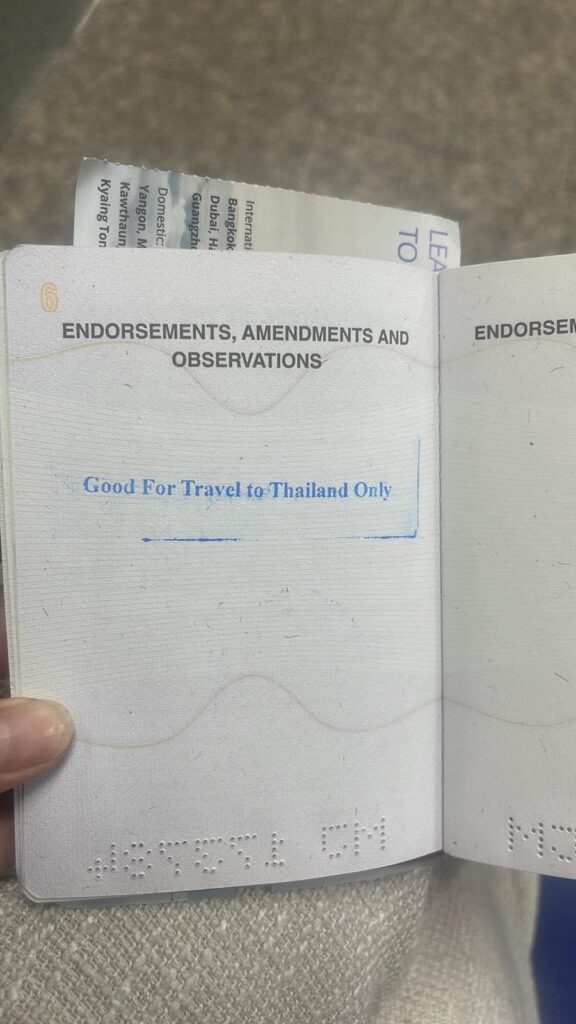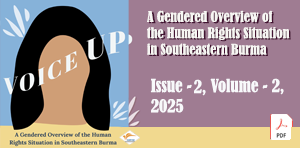Junta Restrictions on Migrant Worker Passports Spark Fears Among Myanmar Workers in Thailand
September 26, 2025
HURFOM: Myanmar migrant workers in Thailand, who recently converted their Certificates of Identity (CI) into “Passports for Job” (PJ), are now being issued travel documents stamped “Passport for Thailand Only.” This restriction, enforced by the Myanmar Embassy in Bangkok under junta control, means workers can no longer use these passports to travel outside of Thailand.
The CI booklet, unlike a standard passport, is a temporary identity document issued by the junta-backed authorities to enable migrants in Thailand to work and reside legally. Previously, workers who converted their CI into a PJ passport could also travel to neighbouring countries. However, as of September 26, the embassy has begun issuing PJ passports, which are valid only within Thailand.
“This makes things very difficult for anyone who hoped to leave Thailand through this process. Now it’s restricted only to Thailand,” explained one migrant worker who went through the procedure.
For thousands of CI holders whose work permits are set to expire, the Thai government has instructed employers to transfer them into the MoU system. Many workers, unfamiliar with the bureaucracy, rely on brokers to help with the transition. The process costs at least 15,000 to 25,000 baht, creating an additional financial burden for already vulnerable workers.
Labour rights activists warn that these restrictions are arbitrary and punitive. One activist noted:
“A passport is a travel document meant to allow citizens to move freely across borders. When a government issues a passport but stamps it as valid only for one country, this is an arbitrary restriction. It is a misuse of power.”
A second activist emphasized the human cost:
“Migrant workers already sacrifice so much to survive. To now deny them the right to travel freely, while forcing them to pay brokers and bribes, is cruel. It violates their dignity and their basic rights.”
Legal experts have also criticized the junta’s actions as unlawful. Citing Myanmar’s Constitution (Article 355), one lawyer explained that citizens are guaranteed the right to travel abroad and reside where they choose. The 1948 Burma Passport Rules (Rule 8) also state that a passport remains valid for all countries unless restricted for clear security or diplomatic reasons. Internationally, both the Universal Declaration of Human Rights (Article 13) and the International Covenant on Civil and Political Rights (Article 12) affirm the right to freedom of movement.
The lawyer further explained: “There is no legal basis for the junta to impose a blanket restriction like this. It is not recognized under Myanmar law, nor is it consistent with international human rights law. This is an arbitrary violation of freedom of movement.”
As a result of this sudden change, fear and anxiety are spreading among Myanmar migrant workers in Thailand. Many feel trapped, with no options to move beyond Thailand and no protection against the costs and corruption of the system.
“Workers deserve the right to choose their paths. Instead, they are being forced into narrow channels of exploitation and control,” said another rights-based advocate.
The junta’s decision to limit PJ passports to “Good for travel to Thailand only” is yet another example of how ordinary people are paying the price for the regime’s unlawful policies. For migrant workers, who already endure long hours, low pay, and limited protections, this measure strips away one of their last remaining freedoms: the right to move.




















































